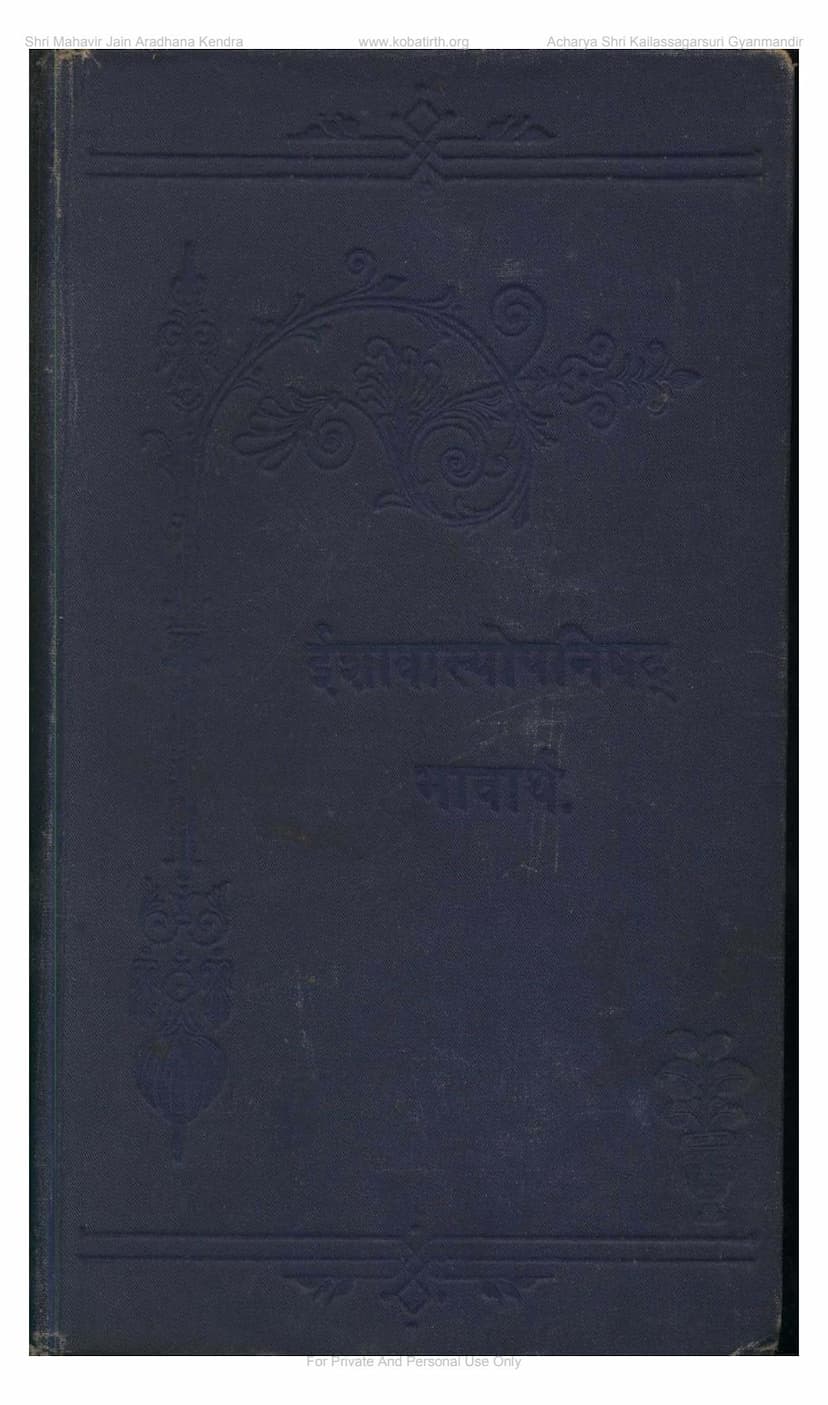Ishavasyopanishad Bhavarth
Added to library: September 1, 2025

Summary
This comprehensive Jain text, "Ishavasyopanishad Bhavarth" by Shrimad Buddhisagar Surishwarji, offers a unique Jain perspective on the traditionally Upanishadic text, "Ishavasya Upanishad." The author, Acharya Buddhisagar, through his profound understanding of Jain philosophy, particularly the Syadvada doctrine, reinterprets the Upanishadic verses to align with Jain principles.
Key Themes and Arguments:
-
Syadvada as the Unifying Principle: The central tenet of the commentary is the Jain philosophy of Syadvada, which emphasizes that truth is relative and can be understood from multiple perspectives. Acharya Buddhisagar argues that all philosophical viewpoints, including those found in the Vedas and Upanishads, are partial understandings of the ultimate truth, and that Jainism, with its comprehensive Syadvada viewpoint, encompasses and explains them all. He views Jainism as an ancient, all-encompassing ocean into which other streams of thought (philosophical schools) flow.
-
Reinterpreting Vedic and Upanishadic Concepts: The author demonstrates how concepts discussed in Vedic and Upanishadic literature, when viewed through the lens of Syadvada, can be harmonized with Jainism. He suggests that the seemingly contradictory statements in these texts can be reconciled by understanding their relative contexts and intentions.
-
The Primacy of Jainism: While seeking to integrate and explain other philosophical systems, the commentary firmly establishes the primacy and antiquity of Jainism. Acharya Buddhisagar asserts that Jain philosophy is the ultimate truth, revealed by the Tirthankaras, and that other systems are either partial aspects of this truth or emerge from it.
-
The Nature of Reality and the Soul: The text delves into the Jain understanding of the soul (Atma) and its relationship with the universe. It emphasizes the soul's inherent purity, its eternal nature, and its potential for liberation from karmic bondage. The commentary critiques the idea of a creator God, proposing instead a view of a detached, witness-like Paramatma (supreme soul).
-
The Path to Liberation: The author highlights the Jain path to liberation through right faith (Samyak Darshan), right knowledge (Samyak Gyan), and right conduct (Samyak Charitra). He stresses the importance of self-effort, detachment from worldly pleasures and possessions, and the practice of virtues like non-violence (Ahimsa), truthfulness, and self-control.
-
Critique of Dogmatism and Emphasis on Tolerance: The commentary advocates for a middle-ground approach, urging readers to analyze all philosophies with an open mind and to refrain from sectarian dogmatism. It promotes the idea of finding truth in diverse perspectives rather than rigidly adhering to a single viewpoint.
-
Personal Journey and Divine Grace: The author shares his personal journey of spiritual realization, emphasizing the role of the Tirthankaras, learned gurus, and Jain scriptures in illuminating the path. He underscores the importance of surrendering to a learned guru for proper understanding and attainment of spiritual goals.
-
Practical Guidance: The text provides practical guidance for spiritual aspirants, outlining the significance of meditation, introspection, ethical conduct, and the study of scriptures. It emphasizes the transformative power of understanding and embodying the teachings of the Tirthankaras.
-
Reconciliation of Seemingly Opposing Ideas: The commentary attempts to reconcile seemingly opposing ideas within different philosophical traditions, including the concept of God, creation, and the nature of the soul, by demonstrating how Syadvada can provide a framework for understanding these diverse perspectives.
Overall, "Ishavasyopanishad Bhavarth" is a significant work that:
- Offers a Jain interpretation of a key Hindu scripture.
- Showcases the philosophical depth and all-encompassing nature of Jainism.
- Promotes interfaith understanding and tolerance through the lens of Syadvada.
- Provides a comprehensive guide for spiritual seekers on the path to liberation.
The commentary's detailed exploration of Jain philosophy, its integration of various religious and philosophical concepts, and its emphasis on self-realization make it a valuable resource for anyone interested in comparative religion, philosophy, and spiritual development from a Jain perspective.